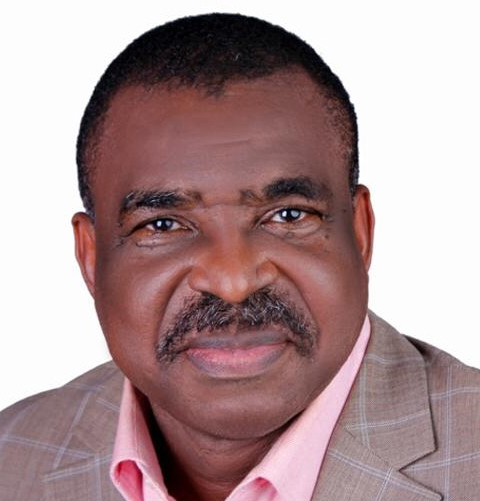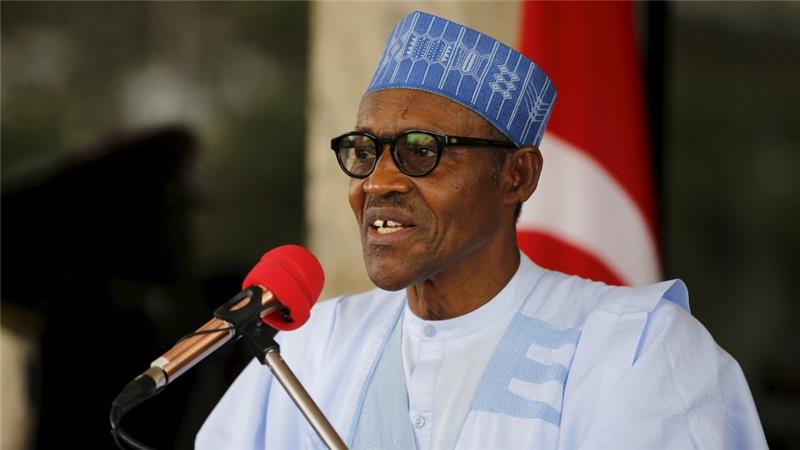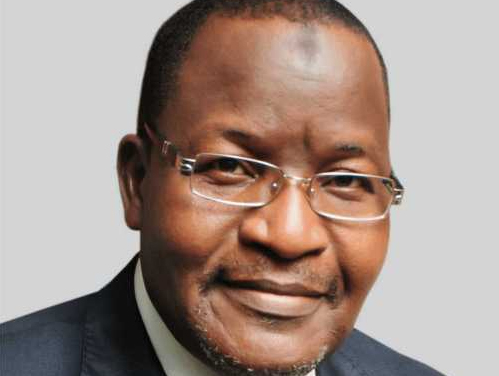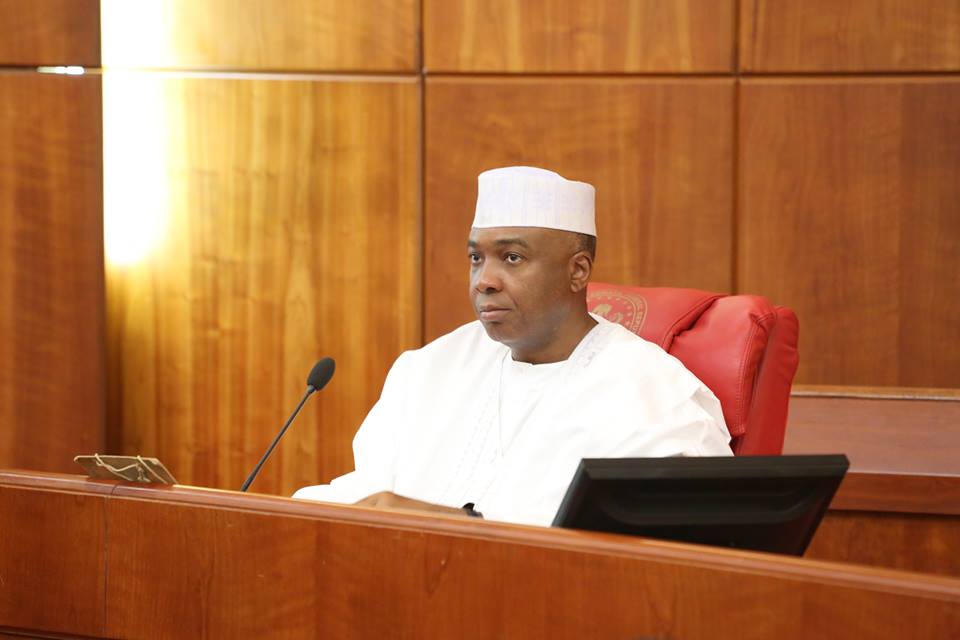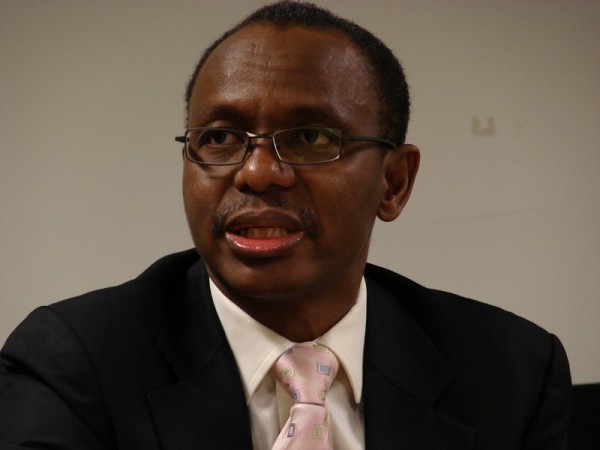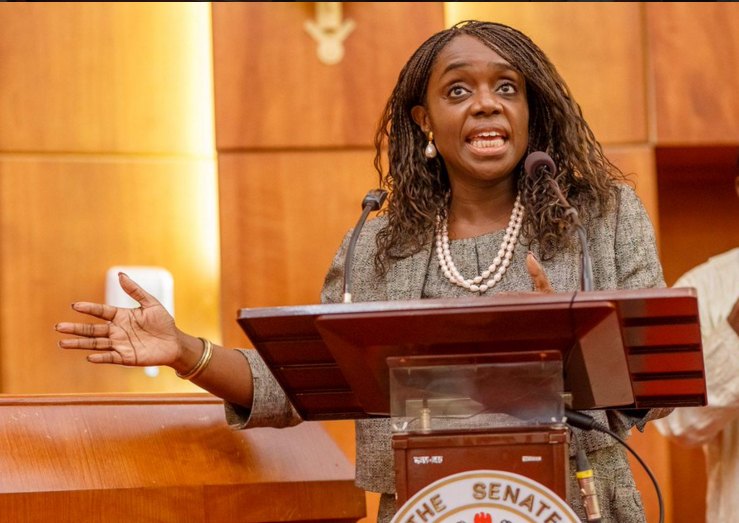The most significant telltale of the economic melt down in Nigeria is the drop in GDP from between 5-6% annually, a couple of years ago to an all time low of 2.7%, according to the National Bureau of Statistics, NBS figures for 2015. A further downgrade to about 2.3% this year is being forecasted, particularly if there is no upswing in international price of crude oil, which is very unlikely.
The global rating agency, Fitch has also affirmed, NBS’s dismal growth outlook for Nigeria by downgrading Nigeria from BB- which is a negative forecast just as Standards and Poor, another acclaimed international rating agency has also stepped down Nigeria to B+ which is also negative. Both Fitch and S&P risk ratings are three, 3 and four,4 steps respectively below investments grade which is a sad commentary on an economy which was one of the fastest growing in the world and the fastest in Africa only half a decade ago.
Not to be out done by the global agencies that are reckoning that Nigeria’s economic future may be impaired, the International Monetary Fund, IMF in a recent report -Article IV Consultation-which is an outcome of IMF Managing Director, Christine Lagarde and her team’s recent visits for consultations with Nigeria, avers that “Nigerian economy is facing substantial challenges”.
The harm that negative risk ratings such as the ones listed above do to economies is to increase the cost of borrowing from sovereign wealth funds , hedge funds and portfolio equity funds abroad.
Advertisement
Unsurprisingly, all the aforementioned dismal economic outlooks are being attributed to the sudden drop in crude oil price which traded at over $100 between 2012-2014 but suddenly dropped by about 70% to between $30-40 since late 2015.
However, the injurious impact of the crash in oil price does not tell the whole story about the distress in Nigerian economy because the reality is that president Mohammadu Buhari’s fight against corruption has also, perhaps unintentionally, exacerbated the instability in the polity to the extent that the political tension is now having a contagion effect on the economy and as such it is taking an unintended toll.
The assertion above is premised on the fact that while new investment initiatives are not being taken, owing to the tough fiscal and monetary measures arising from the anti corruption war, existing businesses are grinding to a halt, due to the hiatus engendered by the uncertainties and disarray in the economy.
Advertisement
There are three significant and overlapping anti corruption initiatives of govt that have become the triggers for the current economic doom and gloom, manifesting in Nigerian streets and cities as fuel queues, high cost of living and massive unemployment amongst the youths.
The first is the so called Dasukigate -$2.1b arms funds, allegedly converted into campaign slush funds and the ripple effect. The probe has sent jitters down the spines of both genuine and fraudulent businessmen and women engaged in defense and security sectors of the economy, such that even the non guilty are afraid. That’s unsurprising because over three hundred (300) companies that did business with the Office Of The National Security Adviser, ONSA are being investigated by the dreaded Economic And Financial Crimes Commission, EFCC led by the fearsome Ibrahim Magu.
With such huge number of companies under scrutiny, the apprehension and uncertainty engendered have become contagious to the extent that others are now afraid to continue to do business, so they are adopting a wait-and-see attitude. The proposed one day workers strike action by the Nigeria Labour congress, NLC to forcefully bring the plight of workers bearing the excruciating pains of a collapsing economy to the attention of govt, is a testimony to the fact that the Nigerian situation is degenerating into a potential labor crisis and it is a result of the absence of defined fiscal policies.
Secondly, apart from security focused companies involved with ONSA that are being quizzed, oil/gas companies have also been under the gaze of anti graft agencies.
Advertisement
With the corruption ridden crude oil for refined products swap contract reviewed by the new minister of state for petroleum resources, Ibe Kachikwu and a new list of crude oil lifting firms drawn up, as well as a new template for importation of refined petroleum products replacing the former procedure, there is bound to be disruptions and the resultant consequence is the fuel queues on the streets. This perhaps explains why Kachikwu, who also doubles as the Group Managing Director of Nigerian National Petroleum Corporation, NNPC, told Nigerians that he was not a magician who could wave a wand so that the embarrassing fuel queues would disappear over night. The straight talking Kachikwu’s narrative didn’t resonate well in the political circles, so he got lambasted by APC leader, Bola Tinubu for not being politically correct. Even though it should be clear to everybody that the fuel queues won’t go away till the month of May, when the new imports are expected to arrive as importers only just received allocation of foreign exchange, politicians and activists would rather Kachikwu apologized to Nigerians instead of telling the truth.
We do not need a sooth sayer to inform us that the disruptive petroleum sector probes were bound to have consequences and barring plans to mitigate such fall outs – like govt having strategic reserves of fuel in different locations nationwide-the current fuel shortages were inevitable.
The simple truth is that companies(downstream and upstream) accused of short changing Nigerians through shady Oil Swap and opaque production sharing contracts, have been returning their loots and in the process, their treasuries have been running dry such that they are unable to sustain their operations like before. The net result is the downward scaling or complete shut down of some of the oil companies thereby further compounding the already dire unemployment situation in our country. Same situation applies to importers and marketers of refined petroleum products who were unable to continue with the trade as they found it difficult to service their existing bank loans which was due to unpaid or delayed settlement of fuel subsidy charges by NNPC. This is in addition to the fact that without the approval of budget 2016, fuel importers were also wary of whether or not govt’s position on the controversial fuel subsidy would remain the same or change.
Until International Oil Companies, IOCs, through an arrangement brokered by Kachikwu decided to support fuel importation by making two hundred million dollars ($200m) available to independent importers, the CBN was unable,due to paucity of funds, to continue to single handedly fund new imports of fuel. With no fresh imports from independent marketers except the meager supply by NNPC, the pumps dried up prompting the current supply crisis.
Advertisement
Similarly, local banks which are the erstwhile providers of funds for fuel importation are having hard time obtaining new credit lines from their counterpart banks abroad, especially as international rating agencies like Fitch, S&P etc, earlier mentioned, are rendering negative prognosis of Nigerian economy, signaling distress.
Thirdly, in addition to the unsavory outcome and ripple effect of Dasukigate, the delay in passing the 2016 appropriation bill, the debilitating outcome of the probe of the oil sector, and lack of fiscal policy blue print, another policy that has had negative effect on the economy is the mopping up govt’s idle funds hitherto kept in commercial banks by ministries, departments and agencies, MDAs, through an initiative referred to as Treasury Single Account, TSA.
Advertisement
The policy has resulted in the transfer of three (3) trillion naira into the vaults of the central bank of Nigeria, CBN.
Oddly enough, considering the universally acknowledged economic principle of every active one dollar generating about 40 cents, it does not bode well that a whooping N3 trillion TSA fund is now sterilized in CBN vaults.
Advertisement
To be fair, finance minister, Kemi Adeosun has said that the TSA fund is being planned to be used to finance about fifty percent (50%) of this year’s budget estimated at N6.06t which the National Assembly, NASS has just approved and awaiting presidential assent. However, the N350b which she promised would be immediately plowed back into the economy to mitigate the negative effect of TSA policy, has remained in abeyance several months after the commencement of the policy/initiative.
While Sterilizing about N3t in CBN may not be an optimal economic management strategy, going by the humongous amounts of looted funds said to have been traced to the USA and Dubai, president Buhari’s govt, in my estimation, may have the enviable record of recovering the largest amount of money stolen by public servants since independence.
Advertisement
Following the emergence of the current regime roughly a year ago and the zestful implementation of her zero tolerance for corruption as evidenced by her relentless pursuit of treasury looters, lots of stolen funds have been recovered and leakages have also been plugged. In the light of the foregoing, l won’t be surprised if indeed president Buhari declares another three trillion naira, N3t as recovered loot-including the much talked about General Sanni Abacha heist, which some countries, particularly Switzerland, have been returning.
It may be recalled that due to public pressure by most telephone callers during the last presidential chat on broadcast media, Mr president had promised to make public, the amount of money recovered at the appropriate time. If per adventure Mr president declares another three trillion naira, N3t as recovered loot, would that not be a hat trick and a master stroke by Buhari whom most Nigerians have been deriding for not keeping most of his campaign promises and for perpetually being on overseas trips?
Imagine the situation whereby the TSA funds and loot recovered from corrupt Nigerians by anti graft agencies are consolidated to form a lump sum of N6t- TSA N3t + N3t loots = N6t. The hefty N6t would be just N600 billion less than Nigeria’s 2016 budget of N6.06t.
The scenario above may appear fantastic and farfetched but going by the huge figures that were bandied as having been tracked and trapped by the authorities in the USA and Dubai after president Buhari’s recent visits to those countries on loot recovery mission, along with a retinue of governors and top govt officials, it would not surprise me if N3t is actually declared as having been recovered.
Should that be the case, Nigeria would not need external borrowing of about $4.5b dollars as envisaged by pundits and the speculations that China would avail Nigeria of $2b loan during the current visit by president Buhari to that country would also be a lie.
The fiery lawyer and activist, Femi Falana had for instance, threatened to sue the federal govt should she borrow to fund the 2016 budget based on the belief that govt should instead of borrowing, seek to recover the 200 billion dollars he believes was looted in the past few years. He specifically mentioned un remitted funds in excess of 20 billion dollars that he alleges are outstanding payments from oil companies to the federation account, based on various investigative and audit reports, particularly the one carried out by Nigeria Extractive Industry Transparency Initiative, NEITI.
Skeptics may ague that if the recovered or about to be recovered loot was anything significant, national planning minister, Udoma Udo Udoma, would have factored it into the 2016 appropriation bill, but the counter argument to that, is that for obvious reasons, apart from president Buhari, only EFCC chairman, Magu, CBN governor Godwin Emefiele and minister of justice and Attorney General of the federation, Abubakar Malami may be privy to the sum of money so far recovered. In other words, planning minister could not factor in the loot because he is unlikely to know the amount recovered so far.
Moving away from the realm of speculation to analysis, there are always two sides to a coin and knives often cut with both sides, so there are downsides to president Buhari’s anti corruption crusade.
Obviously, lots of stolen funds must have been recovered from the $2.1 billion arms procurement, a.k.a Dasukigate, which is quite commendable ; without doubt, the cancellation of the dodgy crude oil swap/opaque production sharing contracts, have plugged the leakages of public funds into the private bank accounts of ‘nefarious ambassadors’ in the oil sector ,which is a welcome development ; and truly, the mopping up of public funds in MDAs via TSA, has in like manner ensured that our common wealth has been pried out of the sticky fingers of thieving civil servants,and therefore music to the ears; but the other side of the coin is that the commendable actions listed above, are also by omission or commission grinding the economy of Nigeria to a halt.
It is at this point that balancing the act between anti corruption war and growth of the economy by president Buhari becomes critically important because,it could be the game changer, if a good balance is struck .
To determine how Nigeria can walk the tight rope without a disastrous outcome , let’s benchmark corruption ridden Chinese and Indian societies-the fastest and second fastest growing economies in the world-against Nigeria, to see if we can learn anything from how they have balanced their anti corruption crusade with economic growth.
Incidentally, president Buhari shares his passion for intolerance of corruption with the current Chinese leader Xi Jinping.
Like Buhari, reform minded Xi has been cracking down on corruption. He has so far detained over 105 high ranking officials-governors and ministers-as well as punished hundreds of others.
The negative fall out of the graft war in China is the weakening of the Chinese currency-Yuan/Renminbi and the wiping-off of about three trillion dollars ($3t) in they’d stock market in just three weeks, during summer of 2015 , due to uncertainties surrounding the new policy direction of the country.
Today, the situation is not different in Nigeria where owing to drop in oil price and arising from lack of clear cut economic direction, the naira has been officially devalued by nearly 20%, yet it has continued on a downward slide to the extent that the currency is now exchanging for between N300-400 =$1 in the parallel market which is over 100% devaluation.
Add that to the fact that the Nigerian stock market has lost over one trillion naira in value in the past one year, then you can have a full grasp of the toll that the war against corruption has taken on Nigerian economy and indeed Nigerian people.
To douse the pressure on her economy, China, during the National People’s Party congress-the ruling communist party parliament-held last month (from 5th of March), made deliberate and concerted efforts to communicate her policies better by stating that “despite difficulties, the party leadership had the country under control”.
According to Nikkei Asian Review news media, the initiative of clarifying the fog on policy by Chinese authorities, boosted confidence in the leadership and resulted in the reversal of the confusion in perception and offered a clearer understanding of the inherent positive qualities of the corruption crackdown.
By the same token, the second fastest growing economy in the world, India, has also been experiencing massive corruption challenges. The recent collapse of an over head bridge, while under construction, killing 27 people in Kolkata, in the state of West Bengal , has all the trappings of politics, bribe and greed, which is the tripod that keeps corruption astride. In fact, like Nigeria where defense contract was the funnel for campaign slush funds for election 2015- now famously dubbed Dasukigate, political campaign slush funds are channeled through construction contracts in India, according to reports by World Economic Forum, WEF.
Although Indian prime minister, Narenda Modi had pledged to root out corruption during his campaign in 2014, stamping out corruption has proven to be an uphill task, even though he has made some progress.
What the situation in China and India imply is that killing corruption, as president Buhari is aiming to do in Nigeria, is not a hundred meters dash but a long distance race.
I purposely referenced corruption in China and India,which are the fastest and second fastest economies in the world, to drive home the point that corruption and economic growth can thrive side by side. So there is no need to aim to kill the former before the latter can take hold, as we seem to be doing in Nigeria.
Make no mistake about it, l’m totally against corruption and l support the effort to intelligently and systematically eradicate the scourge but l’m only concerned about possible calamitous consequences, such as the unpalatable fall outs we are currently suffering,if it is not handled with great caution.
Whereas Nigerian govt has not heeded our persistent calls for the exercise of caution in the anti corruption war, as unguarded anti corruption crusade is tantamount to chasing a bull into a china shop,some top govt officials to some extent are now refraining from de-marketing Nigeria and Nigerians through negative speeches at home and abroad. The resultant effect of the toning down of negative rhetorics has so far been the partial cooling down of the tension in the polity, but unlike China and India, Nigerian leaders are yet to come up with clear cut policies/economic blue print on how they intend to steer Nigeria away from the current economic precipice where it seems to be hanging.
For example, apart from the uncertainties occasioned by the debate on whether to devalue the naira or not, the sustainability or otherwise of the controversial fuel subsidy policy is still ambiguous, as it is only N150b that is provided for it in 2016 budget. Further more,APC’s campaign promise to provide safety net for the poorest members of the society via payment of five thousand Naira (N5,000) stipend to the unemployed graduates and the very poor in the society is still very foggy as Mr president appears to be prevaricating on the matter.
It’s not enough that finance minister, Adeosun has written three articles published in the media pointing to the direction of this regime’s economic policies, which she affirmed as being underpinned by Keynesian theory of fiscal stimulus. Obviously, more needs to be done via the release of an approved economic blue print with a presidential seal because the buck still stops at Mr president’s table. Without an economic management team to chart a dynamic and sustainable development pathway, president Buhari is increasingly looking like a leader who is not in a hurry to rescue Nigeria and perhaps also not beholden to delegation of authority.
In the final analysis, there is need for our leaders to engage in more rigorous thinking about policies and programs, while they are being formulated, because every positive policy action usually has a negative consequence which is often overlooked. Failing to plan against such unintended consequences can be grievous, as evidenced by the financial crisis that ensued as a result of unstructured corruption crackdown in China last year, which is also currently playing out here in Nigeria following the present war on corruption.
So going forward, our leaders should apply their best efforts to steer our dear country away from slippery slopes, by engaging in more critical thinking that would produce policies that promote good governance, rather than relying on exotic campaign rhetorics and propaganda, as well as disruptive corruption probes which are now creating ugly back lash against president Buhari and the ruling party, APC.
Onyibe, a development strategist and futurologist, who is a former commissioner in Delta State govt and an alumnus of the Fletcher school of law and diplomacy, Massachusetts, USA, sent this piece from Asaba, Delta State.
Views expressed by contributors are strictly personal and not of TheCable.
Add a comment
